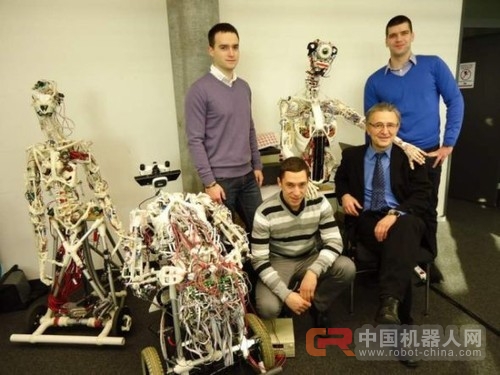
Renmin Wang, a professor and doctoral tutor of the Renmin University of China’s School of Philosophy, also experienced that the robot’s capabilities exceeded her imagination and not only integrated the functions of many electrical appliances, such as playing music and news, purifying the air, and having strong educational functions. , And it can keep children interested in learning for a long time. She suggested that in terms of early childhood education, more functions should be developed and good moral qualities such as regular awareness, politeness, and moral awareness should be embedded. Of course, if we can go further, we must embed connotation rules such as personality qualities and humanistic qualities required by society into robots to form better human-computer interactions and solve the emotional accompaniment problems of the widowed old people. This is even better. Everyone's family area is limited. Integrating all functions into one should be an important direction. What are the dangers? Asimov once proposed the famous three principles of robotics: first, robots cannot harm humans; second, robots should obey humans on the basis of not harming humans; and third, robots should be protected on the basis of the first two. Own yourself. With the development of smart technology, there is no way to solve the legal problems brought about by the development of AI technology. The film "Absolute Control" shows us a devastating blow to human life that a robot losing human control could have. There is also a problem in the movie that is closely related to everyone, that is, privacy leaks - the photos of the protagonist's daughter taking a shower have all leaked out. Once the robot enters the family and lives with the family as a family member, it will inevitably see and hear a lot of family privacy. Robots have glasses and ears. How can we ensure that information held by robots is not used illegally? If the robot autonomously or privately reveals the privacy of the family, the entire artificial intelligence industry will usher in a severe test. "Once mankind loses its trust in robots, it may not be far off to say goodbye to this industry. It will take a long time to reshape the relationship." Li Kui, a legal expert on legal evening news and a network analyst on interpretation of legal issues, said that this is A legal issue that is worth exploring in depth throughout the industry. At present, IT and intelligent technologies in the United States are so advanced that there are no legal provisions in this area. The intelligence of a robot is not on its own, but it is actually a continuous upgrade through the network system behind it. Once it is beyond the user's operating range, or if the system is intruded by humans, how to protect the user's interests is not compromised. If robotic injury to children is to occur in the event of a robotic manufacturer, R&D institution, sales organization, installation organization, or operator, whether or not to assume corresponding legal responsibilities and how to divide responsibilities is a legal issue worth considering. . At present, there are already hundreds of robotics companies in China, but there is no unified top-level control system and various standards have not been established. Violation of the three principles of Asimov On July 7, 2016, in the center of Dallas, USA, there was a clash between the police and the parade crowd. Several police officers were killed and injured. The police locked up gunmen who were former veterans. After several hours of confrontation, eventually Dallas police installed a pound of C4 explosives on the robot's robotic arm. Then the robot was detonated by remote control approaching the suspect and killed the suspect. Although the robot helped the police to solve the problem, this incident triggered a great discussion of robot ethics. Human-designed robots should serve humans and should not hurt humans, even in the name of the country. And this incident also clearly violates the first rule of Asimov's law. According to Liang Hong, project leader of the Global Doctors' Organization China Representative Office and AI and life and health research scholar, AI's technology is booming. In recent years, the papers relating to deep learning have been geometrically presented regardless of the number of publications or the number of citations. Increasingly, China and the United States are leading the way. China even surpasses the United States. This is a matter worthy of pride. But whether artificial intelligence is good or bad for us human beings is a blessing or a curse. It is still not easy to say now. Like Professor Hawking said, it may be a human disaster. However, the professor of robotics at Beijing University of Aeronautics and Astronautics, a visiting scholar at the University of Hamburg, Germany and co-founder and chief scientist of Beijing Evolution Software Co., Ltd. Wang Hao, hope that people do not have to worry too much about the problems that robots bring into the home. “When people invent tools, they actually want to use the tools for my own use and solve problems. How the tools are used depends on people. We're talking about its decision-making mechanism rules are set by people. It's human.” The problem is a common problem in today's society. He believes that the issue of privacy on the Internet is not unique to robots, and so is mobile phones.
Photovoltaic Cable PV Solar Cable
Photovoltaic Cable PV Solar Cable,Electric Solar Cable,PV Solar Cable
Chongqing Taishan Cable Co., Ltd. , http://www.cqbareconductor.com
没有评论:
发表评论